Rob Bignell's Blog, page 341
March 13, 2014
Client publishes her first novel, set in Africa
One of  my editing clients from this winter, Roxana Gillett, has published her first novel. “The White Elephant Kneels” tells the story of African-born Lillian Drake, who after being almost killed on her tenth birthday by an unholy black leopard, flees to the United States with her father, a Baptist missionary who promises her a “normal” life on California. Bound by her love of wild animals, Lill grows up to become a respected veterinarian. Twenty years after leaving Africa, the suspicious death of her husband and a sudden turn of events involving a white African elephant force Lill to return. Within hours of landing in Africa, Lill is faced with the reality of who and what she really is and discovers those whispered childhood stories of witch doctors and the Mbali jungle are far more than simple superstitions. Voodoo and the ability to see souls sets her life in motion – and if she’s not careful, sorcery and black magic will end it. “The White Elephant Kneels” is available online as an ebook and soon will be out as a paperback.
my editing clients from this winter, Roxana Gillett, has published her first novel. “The White Elephant Kneels” tells the story of African-born Lillian Drake, who after being almost killed on her tenth birthday by an unholy black leopard, flees to the United States with her father, a Baptist missionary who promises her a “normal” life on California. Bound by her love of wild animals, Lill grows up to become a respected veterinarian. Twenty years after leaving Africa, the suspicious death of her husband and a sudden turn of events involving a white African elephant force Lill to return. Within hours of landing in Africa, Lill is faced with the reality of who and what she really is and discovers those whispered childhood stories of witch doctors and the Mbali jungle are far more than simple superstitions. Voodoo and the ability to see souls sets her life in motion – and if she’s not careful, sorcery and black magic will end it. “The White Elephant Kneels” is available online as an ebook and soon will be out as a paperback.
Need an editor? Having your book, business document or academic paper proofread or edited before submitting it can prove invaluable. In an economic climate where you face heavy competition, your writing needs a second eye to give you the edge. I can provide that second eye.
<A HREF="http://ws-na.amazon-adsystem.com/widg... Widgets</A>Related articles
 Add color to your fiction manuscript
Add color to your fiction manuscript How to get rid of Word's proofreading marks
How to get rid of Word's proofreading marks
March 12, 2014
Everywhere a sign and a line: Cue vs. queue
Seeing this  error in a few writers’ manuscripts indicates the need for an entry about these two similar-sounding words.
error in a few writers’ manuscripts indicates the need for an entry about these two similar-sounding words.
Cue can be either a noun or a verb for a signal to do something: The teacher’s nod was Annie’s cue to begin her presentation.
Queue can be either a noun or a verb for lining up: The students got into a queue for lunch.
The line of writers mixing up these two words now should be a lot shorter!
Need an editor? Having your book, business document or academic paper proofread or edited before submitting it can prove invaluable. In an economic climate where you face heavy competition, your writing needs a second eye to give you the edge. I can provide that second eye.
Related articles
 A cosmetic difference? makeup vs. make-up
A cosmetic difference? makeup vs. make-up Scrubbing out those cleanup vs. clean up errors
Scrubbing out those cleanup vs. clean up errors Time to get it right: Past vs. passed
Time to get it right: Past vs. passed Tighten writing by cutting begin fallacy
Tighten writing by cutting begin fallacy Vary syntax to give writing flavor, texture
Vary syntax to give writing flavor, texture
March 11, 2014
Layer story's imagery with symbolic meaning
Descriptions and 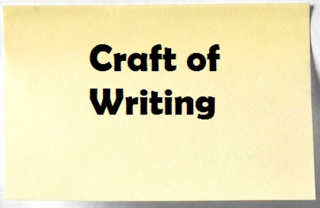 imagery can carry additional levels of meaning by being presented as figurative language. Such wording compares two items, usually by giving one symbolic meaning.
imagery can carry additional levels of meaning by being presented as figurative language. Such wording compares two items, usually by giving one symbolic meaning.
For example, in Abbie’s presence lingered in his mind like dew atop grass on a pleasant morning, the character’s thoughts about the woman are compared to dew atop grass on a pleasant morning, inferring that he finds her lovely. The image of dew atop grass on a pleasant morning is symbolic. The reader can infer that the character is enamored – and it’s much more vibrant than simply writing, He found himself enamored with Abbie.
There are many kinds of figurative language, but three reign over all others, if only because they are more commonly used:
g Simile – This occurs when two objects are compared by using the word “like” or “as”: His forehead was heavily creased, like an overfolded map (The forehead creases are compared to that of an overfolded map.).
g Metaphor – Slightly more sophisticated than a simile, a metaphor makes a comparison without using “like” or “as”: Lyle drooped as Peter interrupted him again. Just like my brother, Lyle thought, always slamming a door in my face (Being made to feel unimportant is compared to having a door slammed in one’s face).
g Personification – This technique gives human traits to a nonhuman object or a concept: The flowers danced in the wind (The flowers’ movement is compared to dancing, a human activity).
Such connotations can carry great emotional weight. That’s because through figurative language a writer either infers an emotion by giving it concreteness via the comparison or by presenting an evocative image that goes beyond the word’s literal meaning. Typically, unlike things are compared, which if it’s an apt comparison, bolsters the image’s vibrancy.
Need an editor? Having your book, business document or academic paper proofread or edited before submitting it can prove invaluable. In an economic climate where you face heavy competition, your writing needs a second eye to give you the edge. I can provide that second eye.
Amazon.com WidgetsRelated articles
 Coming up with great story ideas
Coming up with great story ideas Do the right thing: Altar vs. alter
Do the right thing: Altar vs. alter
March 10, 2014
Avoid dead narrator plot gimmick in story
Among the 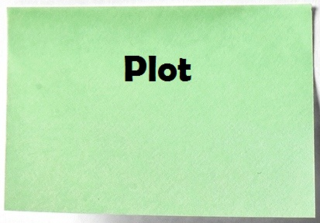 plot clichés in a number of works – especially in the science fiction, paranormal, and the literary genres – is that of the dead narrator. This occurs when the story is told by a character who at tale’s end turns out to be dead.
plot clichés in a number of works – especially in the science fiction, paranormal, and the literary genres – is that of the dead narrator. This occurs when the story is told by a character who at tale’s end turns out to be dead.
The problems with such a story are plenty. First, it stretches the the reader’s ability to get lost in the fictional dream that the author must establish. After all, how can a dead person tell a story? If not confusing for the reader to figure out that the narrator is dead, the story instead must spend a lot of time establishing the setting where the narrator exists, which often distracts from telling the main story. Secondly, such a plot device undercuts the story’s suspense. If the tale is about how the narrator died, the fact that the narrator still exists somewhere means the he really hasn’t ceased to exist. In any case, rooting for such a character is difficult; after all, the reader knows the character won’t live – or truly die, either. Third, such stories risk being too heavy with exposition. The narrator often gives long info dumps to set up scenes. Rather than drama, the reader is presented with a “talky” story.
This is not to say there haven’t been great books whose narrator was dead; Alice Sebold’s “The Lovely Bones” is one such example. But the book is less about the narrator than her family and friends coming to terms with her death, and in this particular at least a plausible explanation is given so that we know the narrator is still “alive,” just on another plane of existence (Well, plausible unless you’re an atheist, of course.). Still, some critics have called the novel mawkish and hence emotionally dishonest, so despite the beautiful writing, even it failed to maintain the fictional dream.
If thinking of using this plot device, you would be better to change the story’s narrator and perhaps use a second person point of view. For example, what if a character who was alive told the tale of another character who dies (though the reader doesn’t know this until the end)? It’s believable, suspense is high, and the exposition can remain a low percentage of the overall tale. While not gimmicky, it’s a more honest story to tell.
Need an editor? Having your book, business document or academic paper proofread or edited before submitting it can prove invaluable. In an economic climate where you face heavy competition, your writing needs a second eye to give you the edge. I can provide that second eye.
<A HREF="http://ws-na.amazon-adsystem.com/widg... Widgets</A>Related articles
 Avoid 'As you know' Syndrome in fiction
Avoid 'As you know' Syndrome in fiction Crack a joke - but only for a good reason
Crack a joke - but only for a good reason Avoid shifting point of view in your story
Avoid shifting point of view in your story
March 9, 2014
Five Great Quotations about Characters in a Story
“First, find 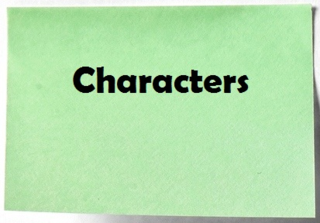 out what your hero wants, then just follow him!” – Ray Bradbury
out what your hero wants, then just follow him!” – Ray Bradbury
“The story...must be a conflict, and specifically, a conflict between the forces of good and evil within a single person.” – Maxwell Anderson
“If you do not have an alert and curious interest in character and dramatic situation, if you have no visual imagination and are unable to distinguish between honest emotional reactions and sentimental approaches to life, you will never write a competent short story.” – Edward J. O'Brien
“What is either a picture or a novel that is not character?” – Henry James
“To most readers the word ‘fiction’ is an utter fraud. They are entirely convinced that each character has an exact counterpart in real life and that any small discrepancy with that counterpart is a simple error on the author's part.” – Louis Auchincloss
Need an editor? Having your book, business document or academic paper proofread or edited before submitting it can prove invaluable. In an economic climate where you face heavy competition, your writing needs a second eye to give you the edge. I can provide that second eye.
Amazon.com WidgetsRelated articles
 Use consistent quotation mark, apostrophe style
Use consistent quotation mark, apostrophe style Five Great Quotations about Editing
Five Great Quotations about Editing Five Great Quotations about Critics
Five Great Quotations about Critics Five Great Quotations about Business of Writing
Five Great Quotations about Business of Writing Place commas inside quotation marks
Place commas inside quotation marks
March 8, 2014
When solitary activity of writing is too isolating
“Writing is 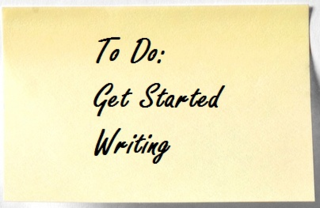 a solitary occupation. Family, friends, and society are the natural enemies of the writer. He must be alone, uninterrupted, and slightly savage if he is to sustain and complete an undertaking.” – Jessamyn West
a solitary occupation. Family, friends, and society are the natural enemies of the writer. He must be alone, uninterrupted, and slightly savage if he is to sustain and complete an undertaking.” – Jessamyn West
Writing lends itself to solitary lifestyle. Writers must spend time in their own thoughts, and penning that next scene often is done by oneself rather than as an out loud, collaborative activity. Because of this, many who love to write by nature are introverts. But what happens when writing leads to deep isolation that threatens your health?
Indeed, psychiatric research has shown that writers are more likely to suffer from mental illnesses such as depression and schizophrenia. They also have higher suicide rates than the general population.
That shouldn’t be too surprising. As writers set upon achieving their goal of publishing a book, sometimes that writing time diminishes the amount of time available for their families, loved ones, friends and colleagues. The result is a forced isolation from the world.
That’s when loneliness can set in…and it’s in just such vulnerable moments that you begin to question your endeavor and then yourself: Does anybody even care of I write this book? Will anybody even read it once published? If they do, is my writing really good enough to be respected by anyone? Like water spilled on a table, the negative thoughts soon cover the entire surface of your writing efforts from your passion to your creativity.
Fortunately, there are many ways you can avoid having your writing lead to isolation:
g Talk with other writers – Writers groups, alpha and beta readers, even editors, can talk with you about writing and understand all the inner tension you’re experiencing. Consider attending a writing workshop or taking a class about your book’s topic.
g Write a little less – Don’t lower your standards but lower your output so you can spend time meeting with your friends or being with your family. After all, you can’t be a good writer if you find it a negative experience due to forced isolation.
g Write in public places – While not a substitute for quality conversation, being around others and interacting with some of them can help lessen the sense of isolation you might get from writing in your own home. Coffee shops, public libraries, and cafes all are great places to write.
Of course, some writers are driven insane by being interrupted, by having their solitariness intruded upon when creating. Certainly all authors crave a “time” of one’s own to write. The challenge is to not allow such seclusion to become a way of life to your detriment, so heed the warning signs, given by our feelings of loneliness and separation.
Need an editor? Having your book, business document or academic paper proofread or edited before submitting it can prove invaluable. In an economic climate where you face heavy competition, your writing needs a second eye to give you the edge. I can provide that second eye.
<A HREF="http://ws-na.amazon-adsystem.com/widg... Widgets</A>Related articles
 When should you start a new novel chapter?
When should you start a new novel chapter? Heart of the matter: Core vs. corps
Heart of the matter: Core vs. corps Give readers sleepless nights with narrative drive
Give readers sleepless nights with narrative drive
March 7, 2014
Market your book via Amazon.com page
The Amazon.com  page that sells your book may perhaps be the most important item in your entire marketing effort. All of your press releases, news articles, blog reviews of your book, radio appearances, website pages and more probably will point potential readers to this page. It is where potential readers can purchase your book.
page that sells your book may perhaps be the most important item in your entire marketing effort. All of your press releases, news articles, blog reviews of your book, radio appearances, website pages and more probably will point potential readers to this page. It is where potential readers can purchase your book.
For many potential readers, it is the page where they find out the most information about your book. If your Amazon.com page turns them off to your book, you’ve lost a sale.
If you’ve used CreateSpace to print your book, Amazon.com automatically will create a page for you, uploading your book cover photo, book description, price, and product details (such as number of pages, trim size and so on). If you used a different printer, at least as of this writing you’ll need to apply to sell your product on Amazon.com through its Advantage program.
The format of the Amazon.com page is predetermined for you, so you’re stuck with the appearance, even if you don’t like it. That’s okay, though – a standard format on each Amazon.com page means visitors don’t have to look hard for the information they want when they go to purchase the book.
What you can control is the text and some other gimmicky but useful stuff on the page:
g Click to Look Inside – This feature allows readers to flip through a limited number of pages of your book before purchasing it. Definitely do this; Amazon.com doesn’t give away enough pages to diminish a sale, and if your title were at a brick and mortar bookstore, potential readers would look through it.
g Book description – This is the equivalent of your cover blurb. Like a synopsis, it tells readers a little about your book without giving away the ending.
g Editorial reviews (about the author) – This is your author’s bio. Especially if writing nonfiction, you’ll want to show in your bio why you are qualified to write a book about the topic.
g Customer reviews – Marketing research shows that many potential buyers of a book make their decision after reading customer reviews.
Rather than pay someone to write reviews, solicit them from your colleagues and friends who are qualified to comment on your book.
In addition, Amazon.com allows writers to build their own author’s page. Besides a biography of you, the page lists (with links) all of your published titles. In addition, you can link a feed from your blogs. As with the page selling your book, the author’s page format is predetermined, but it’s still a very useful tool.
Need an editor? Having your book, business document or academic paper proofread or edited before submitting it can prove invaluable. In an economic climate where you face heavy competition, your writing needs a second eye to give you the edge. I can provide that second eye.
Amazon.com WidgetsRelated articles
 Promote your book by blogging about it
Promote your book by blogging about it Five Great Quotations about Book Critics
Five Great Quotations about Book Critics Will you take advantage of ebook's opportunity for innovative storytelling, content presentation?
Will you take advantage of ebook's opportunity for innovative storytelling, content presentation? Editor appears at Local Author Extravaganza!
Editor appears at Local Author Extravaganza!
March 6, 2014
Editing client publishes debut sci-fi novel
A recent 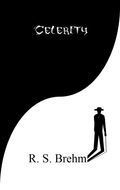 editing client of mine, R. S. Brehm, has published his first novel, “Celerity.” The science fiction tale tells the story of Chandler Douglas, a professional football player running from the law, and Bill Graves, a senior detective with the NYPD, who apprehends him with the assistance of an anonymous tip. Detective Graves’ world is shaken when he discovers that Chandler really is an “Avant-garde,” a group of mutant humans who possess superpower abilities that have been with humanity since the dawn of civilization. “Celerity” is available for purchase online.
editing client of mine, R. S. Brehm, has published his first novel, “Celerity.” The science fiction tale tells the story of Chandler Douglas, a professional football player running from the law, and Bill Graves, a senior detective with the NYPD, who apprehends him with the assistance of an anonymous tip. Detective Graves’ world is shaken when he discovers that Chandler really is an “Avant-garde,” a group of mutant humans who possess superpower abilities that have been with humanity since the dawn of civilization. “Celerity” is available for purchase online.
Need an editor? Having your book, business document or academic paper proofread or edited before submitting it can prove invaluable. In an economic climate where you face heavy competition, your writing needs a second eye to give you the edge. I can provide that second eye.
<A HREF="http://ws-na.amazon-adsystem.com/widg... Widgets</A>Related articles
 Avoid 'As you know' Syndrome in fiction
Avoid 'As you know' Syndrome in fiction Maintain 'fictional dream' when penning novel
Maintain 'fictional dream' when penning novel Five Great Quotations about Writing SF
Five Great Quotations about Writing SF Editor releases first "Hittin' the Trail" guidebook
Editor releases first "Hittin' the Trail" guidebook How to overcome annoying writer's block
How to overcome annoying writer's block
March 5, 2014
Out, error, out! Cleanup vs. clean up vs. clean-up
One of  the dirty little secrets that writers keep is not knowing the difference between cleanup and clean up. To mess things up even more, some don’t understand if they can use clean-up. Time to clear the air!
the dirty little secrets that writers keep is not knowing the difference between cleanup and clean up. To mess things up even more, some don’t understand if they can use clean-up. Time to clear the air!
Cleanup (one word) is a noun or an adjective. To wit: The police called their new plan to cleanup crime in the city “Operation Sweep.”
Clean up (two words) is a verb. Also to wit: You’ll need a broom, dust pan, and map to clean up the kitchen floor.
And let’s just dump clean-up (with a hyphen) into the trash bin right now. There is no such word. Unless you’re British. Then it’s used as an adjective, as in: The clean-up operation began Monday. This rule doesn’t apply to Americans and Canadians, and Aussies and New Zealanders are divided on it.
Need an editor? Having your book, business document or academic paper proofread or edited before submitting it can prove invaluable. In an economic climate where you face heavy competition, your writing needs a second eye to give you the edge. I can provide that second eye.
Related articles
 Constructive tip: Build up vs. build-up vs. buildup
Constructive tip: Build up vs. build-up vs. buildup A cosmetic difference? makeup vs. make-up
A cosmetic difference? makeup vs. make-up All in order: Follow up vs. follow-up vs. followup
All in order: Follow up vs. follow-up vs. followup Ducks in order? Lineup vs. line-up vs. line up
Ducks in order? Lineup vs. line-up vs. line up Strengthen writing by replacing adverbs
Strengthen writing by replacing adverbs
March 4, 2014
Add color to your fiction manuscript
Even if 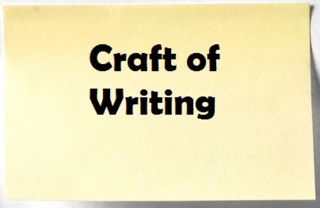 your story offers a lot of dramatic tension and the sentences are tightly constructed, it still can feel a bit monochrome or colorless. When that occurs, the writing probably is not particularly vivid. Rather than read like a piece of fiction, the story instead will feel like a work of dry journalism.
your story offers a lot of dramatic tension and the sentences are tightly constructed, it still can feel a bit monochrome or colorless. When that occurs, the writing probably is not particularly vivid. Rather than read like a piece of fiction, the story instead will feel like a work of dry journalism.
Consider this fairly colorless passage:
Kneeling before the car, Carl Steinar thought his wife appeared to be sleeping, but he knew that she’d simply lost too much blood. A tear fell from his eyes. In a single moment, every memory of their few short years with one another surfaced: the first night together; of how she loved Nebraska; of her hands as they caressed his neck; of their two boys. He stumbled back, tried to hold back the weeping.
The piece lacks several elements that could make it more vibrant:
g Descriptions – To create a sense of the world where your story occurs, you’ll want to describe the spatial setting, the time, and the characters. Not doing this is akin to watching a play without any scenery and with a sheet rather than costumes tossed over the characters.
g Imagery – Good fiction writing appeals to the readers’ various senses – sight, smell, sound, taste and touch. Since people experience the world through their five senses, including them in a story helps the reader vicariously experience the fictional world.
g Symbolism – Descriptions and imagery can carry additional levels of meaning by being presented as similes, metaphors or other figurative language. Such connotations can carry great emotional weight.
By using these techniques, the above passage could be rewritten as:
Kneeling before the car, all he could see was crimson blood. His wife appeared to be asleep, but he knew that crumpled body, jammed between the driver’s seat and projecting steering wheel, had simply lost too much vital fluid for it to be true. Then a mist of lavender netting covered her, as if she was a bride about to wake, and Carl Steinar realized he was viewing Gwen through his tears. In a single moment, every memory of their few short years with one another surfaced: the first night together; of how she loved Nebraska’s yellow sky and the wind’s glorious cry, of her soothing hands as she caressed his neck; of their two little boys. He stumbled back, lay fetal position in the middle of the road, and shaking his head desperately tried to hold back the weeping.
This version of the passage is more vibrant because it actually describes the scene. For example, the reader can better visualize the car wreck through the description of his wife’s body and of where Carl Steinar lays in the roadway. The passage also makes much better use of imagery. We have an array of colors in the scene, such as the crimson blood, Nebraska’s yellow sky, the lavender netting that is Carl’s tears. There also is an appeal to senses beyond sight, specifically touch through a description of the wife’s smooth hands caressing his neck, and of sound via the wind’s glorious cry. Finally, the passage even makes use of symbolism with the simile as if she were a bride about to wake, which emotes Carl’s feelings toward her and his sense of loss.
Need an editor? Having your book, business document or academic paper proofread or edited before submitting it can prove invaluable. In an economic climate where you face heavy competition, your writing needs a second eye to give you the edge. I can provide that second eye.
Amazon.com WidgetsRelated articles
 Mimic sounds to appeal to sense of hearing
Mimic sounds to appeal to sense of hearing Maintain sense of tension through pace
Maintain sense of tension through pace Five basic elements make up a story
Five basic elements make up a story



